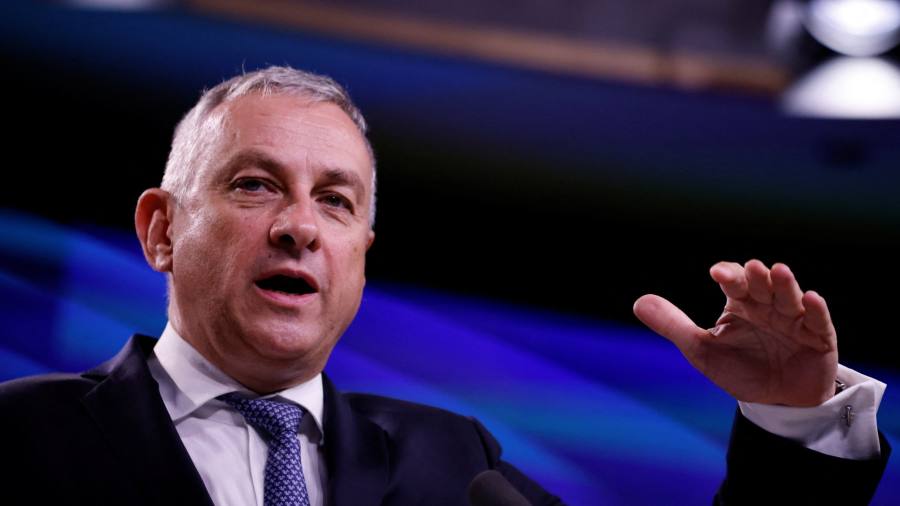
Brussels is acting too slowly to prevent the EU’s energy crisis worsening next year, the Czech energy minister has warned, as he seeks to break the deadlock over a gas price cap designed to ease pressure on industry and consumers.
Jozef Síkela, whose country holds the six-month rotating EU presidency, praised action taken so far to slash gas demand and build new energy infrastructure following Russia’s cuts to European supplies but told the Financial Times in an interview that the bloc must “keep going” or risk economic damage that would undermine public support for Ukraine.
“We need to keep the social peace. We need to keep the economies up and running. We need to ensure that [Russian president Vladimir] Putin will not be able to basically create social unrest or insolvencies or the recession of the European economy because whatever we have invested so far [in helping Ukraine] will be gone,” he said.
Efforts to resolve the energy crisis have stalled. EU governments are at loggerheads with the European Commission over the introduction of a gas price cap that could prevent prices returning to the summer’s record highs.
Síkela said he was “disappointed” that despite repeated requests from member states the commission had still not presented details for how a ceiling on gas prices could work.
Germany, Denmark and the Netherlands are opposed to such a cap — part of a set of proposals under discussion to reduce gas prices — unless there is certainty that it will not increase consumption or risk supplies being sent elsewhere.
Other measures in the legislation include a new system to corral gas demand so that the EU can pool its purchasing power to buy supplies as it did for Covid-19 vaccines as well as emergency mechanisms to ensure all states have fuel in case one is cut off.
But Síkela said he feared the vague clause about introducing a price cap would not be enough to satisfy “a blocking minority” of EU countries, including Italy and Greece, that have threatened to hold up all of the proposals until the commission presents a more detailed plan.
Charles Michel, president of the European Council, sent a letter to commission president Ursula von der Leyen on Monday saying that citizens and industry expected “prompt delivery of concrete results” and proposals for a price cap should be presented “as soon as possible”.
European ambassadors are scheduled to debate the latest set of proposals on Friday before a meeting of energy ministers on November 24.
A further meeting on December 19 will give ministers a final chance to agree legislation before Christmas, but Síkela said he was willing to call as many extra ministerial meetings as necessary to end the impasse and push through legislation.
Europe has enjoyed respite in recent weeks from an energy crisis catalysed by increases in demand following Covid and exacerbated by Russia cutting supplies in retaliation for the EU’s support for Ukraine following Moscow’s invasion eight months ago.
Prices have dropped thanks to a period of balmy weather and storage facilities across the bloc are more than 95 per cent full, according to Gas Infrastructure Europe, an industry body, following a buying spree in the summer. Some of the stored gas is Russian.
But Síkela warned that “the story is not over”. “We should start to think about next winter now,” he said. Supplies of piped gas from Russia could decline to near zero while China could buy more liquefied gas as it eased its strict Covid lockdowns, he said.
Philippe Delorme, executive vice-president of Europe at industrial conglomerate Schneider Electric, said: “People who think that the gas prices tactically have gone down and the party has started again are very, very mad . . . there are more and more voices who are saying that the risk of a blackout across Europe is real, if not this winter but next winter.”